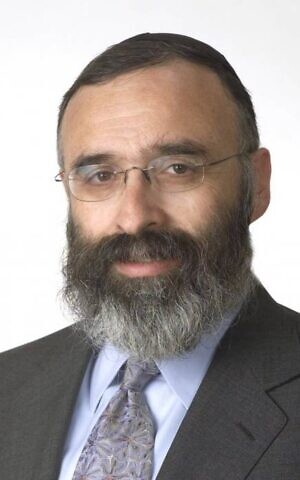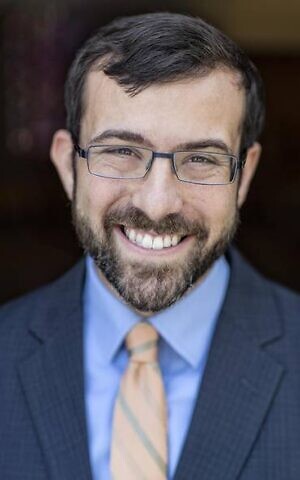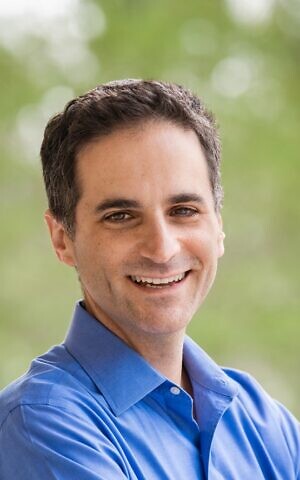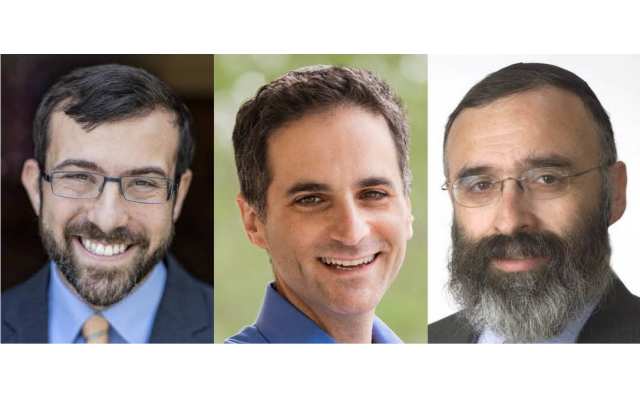Synagogues Help Congregants Process Israel War
As Atlantans grapple with their emotions, they seek community.
As the Atlanta Jewish community still grapples with the trauma of the Oct. 7 Hamas attack on Israel, including the hostage taking and the retaliatory war against the terrorist group that is based in Gaza, local synagogues struggle to provide support and education to their congregants. The programming these congregations are offering appears to reflect the philosophies of their leadership.
“I very much preach action,” said Congregation Beth Tefillah Senior Rabbi Yossi New. “Our congregation is very much action oriented. A mitzvah is as powerful as a bullet.”
Thus, Beth Tefillah created an organization called Atlanta Friends of Israel which identified various charities to which it contributes the money it has raised. So far, the Sandy Springs congregation has raised more than $150,000, of which $80,000 has already been spent. Besides buying supplies for soldiers on the front, it has raised money to purchase two ambulances for Magen David Adom, Israel’s national emergency medical, disaster, ambulance, and blood bank service.

One organization Atlanta Friends of Israel has partnered with is Global Action Institute which has delivered 67 duffel bags of supplies to front line soldiers. Global packed, flew, and trucked these bags directly to military bases at the Gaza border where Israeli soldiers are based before entering Gaza.
Another organization is Butterfly Network, a for-profit group that manufactures mobile ultrasound technology. This technology enables surgeons with the Israel Defense Forces in the field in Gaza to identify shrapnel and bullets inside soldiers. Using a wand and an iPad, the IDF surgeon can see inside muscle, bone, and tissue.
According to Beth Tefillah, after delivering its first wand, the congregation received a call from the father of one of those surgeons on the front line in Gaza saying that Beth Tefillah’s donation saved 30 lives in the first few days in the field.
The effort is personal for a few Beth Tefillah congregants. The sons of two families are serving in the IDF, while another member volunteered to rejoin the IDF, leaving behind a wife who is seven months pregnant.
Beth Tefillah also contacted other Atlanta congregations to celebrate Chanukah with a fundraising concert on Dec. 14. Reform Temple Emanu-El and Conservative Congregation B’nai Torah co-sponsored the concert. Referring to its outreach to non-Orthodox congregations, New said, “My attitude is whenever we can, we do, and we should.”
Congregation Shearith Israel Rabbi Ari Kaiman stresses that there is no official opinion espoused by the congregation. “Shearith Israel is a community of a lot of voices. My role is to help Shearith Israel be a platform” for those voices.

“Voices of Shearith Israel” is that platform specifically created to allow congregants to share their reflections and essays in the wake of the Oct. 7 devastating assault on outdoor concerts, more than 20 communities, and a number of army bases in Israel not far from the Gaza Strip. “We have a disclaimer saying that we’re not articulating a right way to feel,” said Kaiman.
About a dozen essays so far have been posted, written by Kaiman and other rabbis as well as various congregants. On the synagogue’s website, the “Voices of Shearith Israel” are described as “personal,” and possibly “a little raw. We hope this effort will lift up the voices of our community, so that we feel a little less alone in our grief, sorrow, fear, and anxiety. Perhaps we’ll even gain a measure of comfort and strength. Maybe even hope.”
According to Kaiman, there are a “bunch of different opinions” and “a mix of emotions” among his congregants. “It’s not for me to decide,” he said. Some of the contributed essays are volunteered, some are solicited, but every week there’s a different voice. He acknowledged that there’s a “challenge to articulate what we’re feeling.” But he emphasizes that there’s no “right way to feel.”
On Jan. 7, Shearith Israel, in conjunction with Congregation Or Hadash and Ahavath Achim Synagogue and the Atlanta Rabbinical Association, hosted Masua Sagiv, the Koret Visiting Assistant Professor of Jewish and Israel Studies at the University of California-Berkeley and a Scholar in Residence of the Shalom Hartman Institute for a presentation on Israel entitled “Navigating Deep Crisis as a People.”
Three days earlier, on Jan. 4, Temple Sinai held a “crash course” in the Arab-Israeli conflict presented by congregant Beth Brown who has a Master’s degree in Jewish history and who has developed a comprehensive curriculum in response to the Hamas attacks and ongoing war.
The congregation has already held a half dozen sessions about the war, said Rabbi Natan Trief, director of adult learning & PNK Learning Center librarian at Temple Sinai. Trief has convened several podcast episodes in which he interviews experts on topics such as antisemitism on campuses and Israel at war.

Trief participated in a Reform rabbis fellowship trip to Israel on Nov. 14 and Senior Rabbi Ron Segal recently returned from a short volunteer mission there. When he was there, barely a month after the Hamas attack, Trief found a variety of emotions among Israelis. There was a combination of hopelessness and hopefulness. “On a superficial level, there was a picture of unity,” he said. But he also suggested that the trauma the country experienced will last generations. “It was a terrible lesson in humility.”
Temple Sinai is planning a congregational mission to Israel at the beginning of February. “Not for first-timers,” the trip will combine volunteer work with education.
Among the Sinai congregants, “there’s a thirst for knowledge” and a “lot of confusion. There are a lot of scars that have opened,” he said, scars that are always on the Jewish soul. “That trauma is coming to the surface. Folks really want to talk about Israel. They need a sense of community and unity. People want to be heard and need to process.”
Rabbi New emphasizes that the Jewish community “cannot afford to be depressed. When people are depressed, they lose energy. That’s a victory for the enemy. There was a method to their madness,” he added, speaking of Hamas. “We cannot succumb.”
- Israel news
- Community
- Jan Jaben-Eilon
- hamas
- Gaza
- Congregation Beth Tefillah
- Senior Rabbi Yossi New
- Atlanta Friends of Israel
- Magen David Adom
- Global Action Institute
- Butterfly Network
- Israel Defense Forces
- Temple Emanu-El
- Congregation B'nai Torah
- Congregation Shearith Israel
- Rabbi Ari Kaiman
- Congregation Or Hadash
- Ahavath Achim
- Atlanta Rabbinical Association
- Beth Brown
- Rabbi Natan Trief
- Temple Sinai
- Senior Rabbi Ron Segal




comments